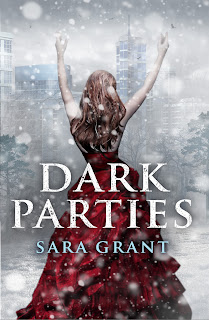

This post was written by Olivia Heminway, a member of my monthly writing group (there's more about her in a previous post). These are her bullet point notes from the panel discussion by authors from The Edge. These authors, who all write edgy YA fiction, have banded together to blog and promote each others' work. You can read about all the authors here.
The Edge: Hooking Teen Readers
With Sara Grant, Paula Rawsthorne, Dave Cousins, Mirian Halahmy and Bryony Pearce
Edgy means issue-based
- Can be controversial but don’t have to be
- Tackle the edges with authenticity
- Make sure that violence, language and sex risks are worth taking
- Be true to what you want to do as an author
- Have to be willing to stand up for what you write about
- Be prepared to blog and have an opinion about the issues
Reservations:
- Make sure you are driven to share your passion
- Don’t forget the story
- The reader has to be able to connect to the story in order to then ‘discuss’ or think about the issue
How to tackle sensitive issues?
- In The Long Weekend, pedophilia is never described or ‘seen’, just implied; the suggestion helps to increase the tension
- Self-censorship and the ‘gate-keepers’ (agents and editors) often make you pull back
- The more controversial, the more difficult to write
- Often scenes that are hard to read are also hard to write, but necessary; it’s about pov, how much is shown…
- Keep in mind that the UK is more open than other countries
Positive rewards include talking with teens about these edgy issues
Hooking teen readers
- Entertaining, engaging, page-turning – these are essential for teen readers
- Characters have to be engaging
- Always keep teen readers at the heart of the novel
- Adults can be represented but the young people have to be the ones to sort out the problems, realistically
- Young adults are not perfect; this is something you have to engage with in your character, a kind of empathy
- Opener has to be grabby; jump into it and throw in questions and intrigue; it’s all about what happens next
- YAs need to be immediately engaged; they’re used to it in their daily lives
- Consider deleting your beginning and starting your novel later
- Don’t let initial action trail off into something dull; cut out bits that drag


Language: Swearing and Slang
- Consider showing toughness/coolness with other carefully chosen language, intonation, action, description
- Slang has to earn its place in a text; use it sparingly
- Slang dates so quickly that the writer can come across as ‘middle-aged’
- Consider making up slang; definitely do you
0 Comments on SCBWI BI Conference - The Edge panel: Hooking Teen Readers as of 1/1/1900Add a Comment


